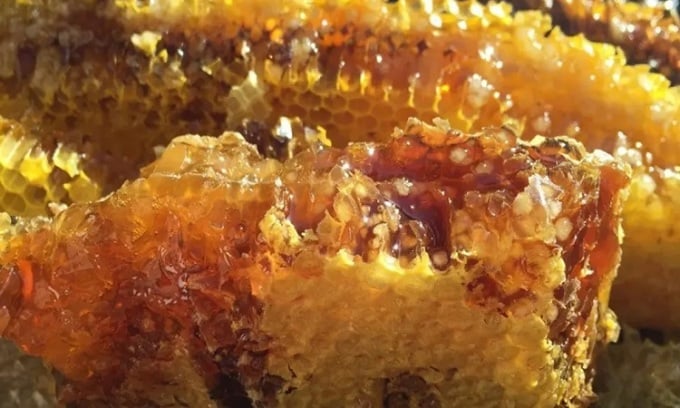In one of the most daring ambushes of all time, a Roman army is killed by enemy poisoning with hallucinogenic honey from bees living along the Black Sea.

Crazy honey is produced by bees that feed on rhododendron nectar. Photo: Interesting Engineering
The mad honey caused Roman soldiers who had eaten it to suffer a number of unpleasant symptoms for a short time and lose their fighting ability. The massacre took place during the Third Mithridatic War, in which the Roman army expanded its empire across Anatolia from 73 to 63 BC. During the campaign, they encountered one of their most formidable enemies, King Mithridates VI of Pontus, also known as the Poison King.
Mithridates became obsessed with poison after his father was murdered by strangers at a royal banquet. Known for his intelligence and interest in pharmacology, Mithridates developed an immunity to certain poisons by taking small daily doses. When the Romans arrived, Mithridates' soldiers attacked the invaders with poisoned arrows, released wasps and other insects into Roman siege tunnels, and even developed chemical weapons from kerosene.
Describing an incident that occurred in 65 BC, ancient historian Strabo reported that Mithridates’ allies, the Heptacomitae, used mad honey to destroy a Roman army. Produced by bees that feed on the nectar of rhododendrons, the honey contained high doses of a neurotoxin called grayanotoxin, which could cause hallucinations, loss of coordination, and vomiting in small amounts, and severe heart complications in large amounts. According to Strabo, the Heptacomitae placed bowls of honey along the Roman army’s path. Then, when the soldiers consumed the honey and lost their senses, the Heptacomitae would attack and easily eliminate the enemy.
Combining historical records of the event in a paper published April 29 in the journal Cureus, the team led by Matthew D. Turner of Madigan Army Medical Center explained that this was not the first case of an ancient army being poisoned with mad honey. Three centuries earlier, the Greek general Xenophon described hundreds of his soldiers behaving strangely for a period of time, suffering from vomiting, diarrhea, and a complete loss of the ability to stand. Despite the severity of the poisoning, none of the soldiers died. All regained consciousness and senses within 24 hours of eating the honey.
In reality, grayanotoxin poisoning was rarely fatal because the poison was quickly metabolized by the body. However, by timing their attack to catch Roman soldiers under the influence of mad honey, the Heptacomitae easily massacred their enemies. Even so, this small victory did not help Mithridates turn the tide of the war, and the Pontic kingdom was still destroyed by the Roman army.
An Khang (According to IFL Science )
Source link






![[Video] Forecast of benchmark scores of mid-ranking universities to drop sharply](https://vphoto.vietnam.vn/thumb/1200x675/vietnam/resource/IMAGE/2025/7/18/be12c225d0724c00a7e25facc6637cb9)
























































































![[Infographic] In 2025, 47 products will achieve national OCOP](https://vphoto.vietnam.vn/thumb/402x226/vietnam/resource/IMAGE/2025/7/16/5d672398b0744db3ab920e05db8e5b7d)







Comment (0)